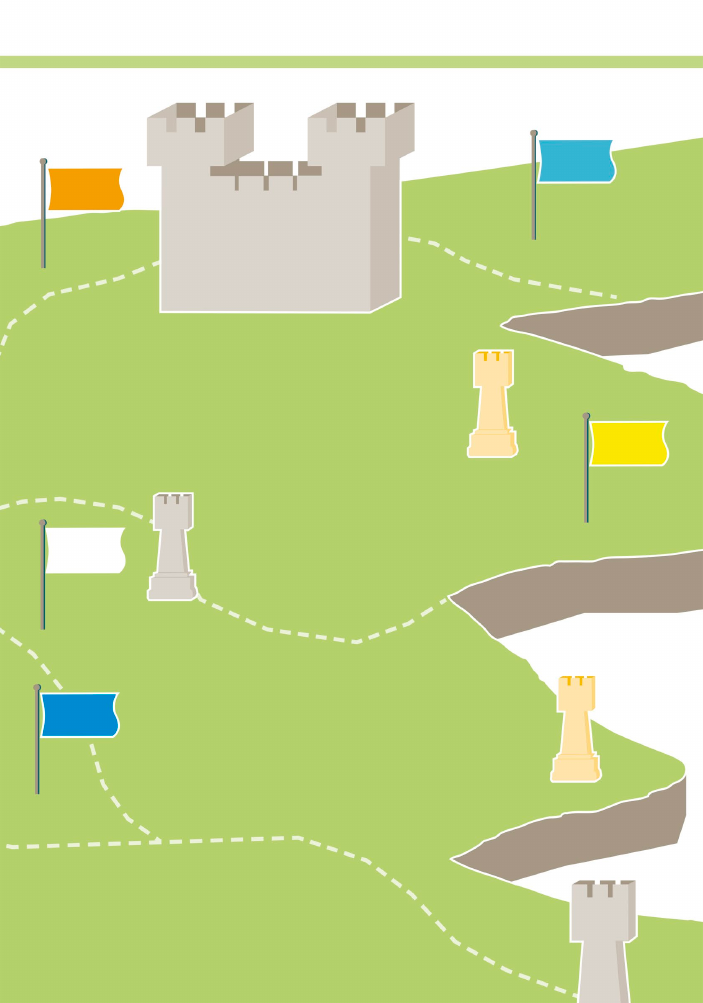
64 / LEADING OTHERS
Building power
Power is the capacity to influence an individual or group
to behave in ways they would not otherwise. Learning how to
acquire power and exercise it effectively will help you manage
and influence others and develop your managerial career.
Developing power bases
Managerial positions come with the
authority to issue directives and
allocate rewards and punishments—
for example, to assign favorable or
unfavorable work assignments, hold
performance reviews, and make
salary adjustments. However, you
can also build power in other ways,
such as holding valuable expertise
or information, wielding political
power, or forging strategic alliances
in an organization.
of successful leaders point to the
value of presence—face-to-face
interactions help build power
90%
Charisma When others admire
and identify with you, you exert
power over them. Charisma
comes from individuality,
confidence, enthusiasm, forms
of speech, and body language,
so can be learned.
Association power Alliances
and personal friendships
with people in powerful
positions can increase your
influence in an organization.
US_064-065_Bulding_Power.indd 64 30/05/16 3:01 pm

BUILDING POWER / 65
Expertise Organizations are often dependent
on experts with special skills, such as software
analysts, tax accountants, and environmental
engineers. Building expertise in these areas,
or being able to mediate between experts,
will give you power within an organization.
Access to information When others
need information that only you have
access to, you have power.
Politicking You don’t always win just by being
a competent performer. Devising strategies
and taking actions to influence the distribution
of advantages and disadvantages, or the
outcomes of important decisions, will boost
your power and status.
Impression management This is the
process of shaping the image you project
to others in order to favorably influence
how others see and evaluate you. This
may be done positively or deceptively.
Ways to build
power
US_064-065_Bulding_Power.indd 65 30/05/16 3:01 pm

66 / LEADING OTHERS
Types of power
Your power within an organization can
come from a variety of sources. Use these
different types of power in their correct
contexts to maximize your effectiveness
as a manager.
•
Legitimate power This derives from
your position in the hierarchy of a
company and is enhanced by a clear
chain of command and corporate
structure in the organization.
•
Coercive power The threat of sanction
or punishment confers power, but
should be used very carefully—when
the organization is in difficulty or crisis.
Ways to use managerial
power to obtain desired
outcomes
Legitimate power derives
from your position in the
hierarchy of a company,
and is enhanced by a clear
chain of command and
corporate structure
•
Referent power This form of
power derives from being respected
and admired by subordinates, and
encouraging them to behave in
imitation of your style. In this
situation, giving subordinates
responsibility for their own actions
enhances your power. It works best in
small workplaces, where one-on-one
relationships can be fostered.
•
Reward power This comes from
the ability to provide incentives
and rewards, such as praise or
promotion, to subordinates.
US_066-067_Bulding_Power.indd 66 30/05/16 3:01 pm

BUILDING POWER / 67
FRIENDLINESS
Use flattery, create goodwill, act humbly, and be
supportive prior to making a request. This works
best when you are well liked.
BARGAINING
Exchange benefits or favors to negotiate outcomes
acceptable to both parties. This works best when
organizational culture promotes give-and-take cooperation.
ASSERTIVENESS
Be direct and forceful when indicating what you want
from others. This strategy is most effective when the
balance of power is clearly in your favor.
COALITIONS
Develop support in the organization for what you want to
happen. This is most effective where final decisions rely
on the quantity not the quality of support.
REASONING
Use facts and data to make a logical or rational
presentation of ideas. This is most effective when
others are trustworthy, open, and logical.
HIGHER AUTHORITY
Gain the support of those above you to back your requests.
This is only effective in bureaucratic organizations where
there is great respect for authority.
SANCTIONS
Use organizationally derived rewards and punishments
to obtain desired outcomes. This approach is only for
influencing subordinates, and may be seen as manipulative.
Ways to use managerial
power to obtain desired
outcomes
US_066-067_Bulding_Power.indd 67 30/05/16 3:01 pm
..................Content has been hidden....................
You can't read the all page of ebook, please click here login for view all page.
